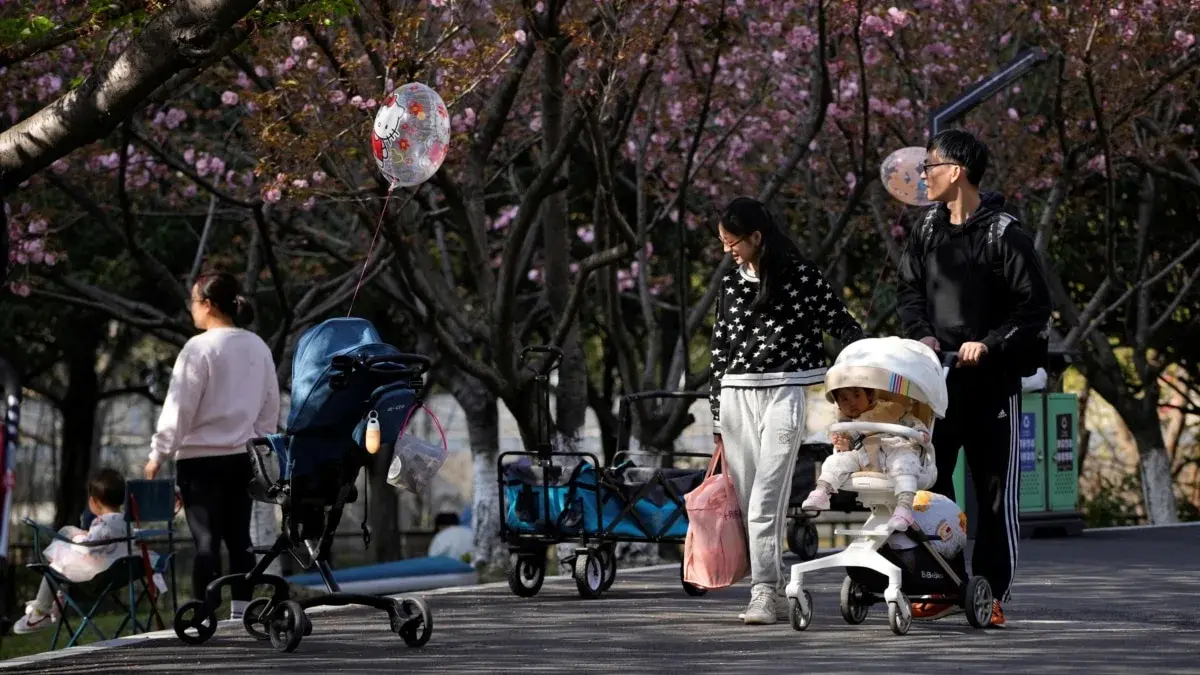Cross-posted from: https://feddit.de/post/8051008
As a result of the one-child policy, China’s fertility rate was well below 2 children per woman for more than three decades.
At the same time, according to the Beijing-based YuWa Population Research Institute, the average cost of raising a child to the age of 18 in China stood at 485,000 yuan ($76,629) for a first child in 2019, almost seven times China’s per capita GDP that year ($10,144). The financial burden has many families thinking twice before adding members to their family.
The combination of more retirees and a shrinking working-age population means fewer people have to support a larger share of the population, putting pressure on Beijing’s health care and pension programs.
Could a decrease in population be a factor leading to China having a lower environmental impact?
Less people and lower GDP would probably mean lower energy consumption (or at least slower growth), which China produces in large part with coal. Less overall consumption in food and other products could lessen environmental impact in other ways.
This article focus on GDP. The earth isn’t shrinking because human population shrink. If the pie is earth’s carrying capacity, it means a bit more pie for each inhabitant.
The short answer: I don’t know. There is no research investigating the impact of a decreasing Chinese GDP on the country’s environmental impact (to the best of my knowledge).
The longer answer: China is bound to reduce its environmental impact anyway. The country has a very densely-populated urban area with low-lying coastal cities. Around 20% of the population lives there, producing around 33% of the country’s GDP. A rising sea level and other natural desasters (which is what practically all environmental experts inside and outside China expect even in the short term, meaning this year) will have a devastating impact on China’s social and political stability.
The good news is that China has the potential to get its arms around that imo, if, and only if the country opens up for further investments and international cooperation. Foreign direct investments (FDI) have been contributing significantly to China’s growth in the past (around 20% of the GDP can be directly attributed to FDIs if I remember the number correctly), but FDIs also contributed indirectly by enhancing China’s technological and managerial capacities in the past. Data by China’s Ministry of Commerce shows that foreign enterprises represent just 2% of all companies, but 10% of the workforce (around 40 million jobs) contributing around 16% of China’s tax revenue and 20% of foreign trade (export and import combined).
China will need to maintain this collaboration even more in the future, as a shrinking population is barely apt to boost a domestic market. But international collaboration requires mutual respect of foreign laws, accepting fundamental human rights, and an open economy with a high degree of decentralisation and innovation. I’ll leave it to others to decide whether or not Chinese politics is heading in this direction.
Addition: all numbers are for the years 2021/2022.
I was in Beijing and travelled west across China and over two weeks’ time, and there was no city where the population wasn’t totally overcrowded at every turn. Visiting the Great Wall was like being in Walmart here on Black Friday - no elbow room at all. And in most public spaces we were shoulder to shoulder with other people all the time. I decrease in their enormous population could only be for the better in the long run.
And this doesn’t even touch on the effects an economic downturn could have when couples are already choosing not to have kids for economic reasons.
This could turn into a negative-growth spiral if Beijing doesn’t figure out how to incentivize families to have more (but not too many!) kids soon.
Even better: let’s create an economic system that doesn’t require endless population growth
I’m not sure who the “us” in “let’s” is, but I don’t think Beijing is considering any systemic changes right now. I’m all for changing away from Capitalist systems, but in the meantime most Chinese citizens are in pretty economically-precarious positions, and I’m certainly not going to vote, from my safe position in another country, for their country to collapse in hopes it would rebuild into something better. I’ll hold my ‘let it all burn down so we can rebuild into [preferably a loosely-associated series of Mutualist cooperatives]’ advocacy for my own country.
That analysis would be sufficiently absurd without trying to cram it into a “fact check” format. That it took 40 years since the start of the “one child policy” for the population to actually start declining in any meaningful way is indicative of the fact that to understand these things you need more long-term thinking than is even hinted at here. Will the present trend hurt next year’s GDP growth? Yes. Will they be better off for it 50 years from now? Probably.
The health care and pension system are not Beijing’s, they are those of individual cities and provinces. The systems are highly localized, it’s be like as if states in the US ran Medicare and Social Security. This means it’s huge problem for poor interior provinces and probably manageable for rich costal ones.
Benefits and services from such programs are limited to legal residents of an area but most people in the most productive economic areas are migrants and are not entitled to the benefits.
Without major restructuring of these systems, hundreds of millions or retiring migrant workers are going to overwhelm their home provinces systems.



